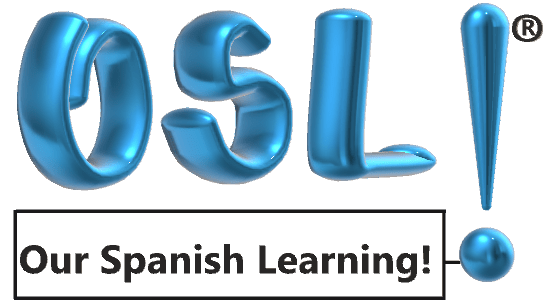Español en 4 semanas: Challenge 1
CONJUGACIÓN EN GENERAL
05.
EXPLICACIÓN GRAMATICAL
Vocabulario hasta ahora
¡Buena suerte! (Good luck!)
¡Nos vemos! (In this case, “See you later.”)
¡Que le vaya bien! (Hope everything goes well!)
¡Que tenga buen día! (Have a good day!)
¿Cómo está? (How are you?)
¿Cómo le va? How are you?)
¿Cómo se dice eso en español? (How do you say that in Spanish?)
¿Cómo se escribe eso en español? (How do you write that in Spanish?)
¿Necesito escribir eso? (Do I need to write that?)
¿Puede escribir eso? (Can you write that?)
¿Qué tal? (How are you?)
A mí me gusta (I like)
abrir (to open)
Adiós (bye)
aprender (to learn)
Buenas noches (good evening/ night)
Buenas tardes (good afternoon)
Buenos días (good morning)
comer (to eat)
Con mucho gusto (It is a pleasure.)
conjugación irregular (irregular conjugation)
conjugación regular (regular conjugation)
Disculpe, … (excuse me)
edad (age)
estudiar (to study)
gustos (likes)
Hable más despacio. (Speak slowly.)
Hable más fuerte. (Speak aloud.)
Hasta luego (See you later)
hay (there is / there are)
Igualmente. (In this case, “Nice to meet you, too.”)
la conjugación (the conjugation)
la raíz (the root)
la terminación (the ending)
leer (to read)
lugar de origen (birthplace)
lugar de residencia (place of residence)
lugar de trabajo (workplace)
Me gustaría presentarle a mi amigo (a) (I would like to introduce my friend.)
Muchas gracias (thank you very much)
Mucho gusto en conocerla. (Nice to meet you (for her).)
Mucho gusto en conocerlo. (Nice to meet you (for him).)
Necesito un lápiz. (I need a pencil.)
No comprendo. (I do not understand).
No entiendo. (I do not understand).
nombre completo (full name)
Nos vemos mañana. (See you tomorrow.)
nosotros (we)
Por favor (please)
Presentar a (introduce to)
profesión /ocupación (profession/ occupation)
Repita otra vez. (Repeat again.)
tejer (to knit)
tener (to have)
Tengo una pregunta. (I have a question.)
terminar (to end)
tiempo libre (spare time)
Un momento. (One moment.)
usted, él, ella (you, he, she)
ustedes, ellos, ellas (you, they)
verbos en infinitivo (infinitive verbs)
yo (I)
Yo soy (I am)
Yo tengo 37 años. (I am 37 years old).
Yo trabajo (I work)
Yo vivo (I live)
Revisando vocabulario
Instrucciones: En esta parte usted encontrará palabras en español e inglés. Haga clic sobre las palabras ya memorizadas.
Instructions in English
(click here)
Instructions: In this part you will find words in both Spanish and English. Click on them when you have already memorize them.
Haga clic sobre las palabras ya memorizadas.
CONJUGACIÓN EN GENERAL
Primero, vamos a aprender tres aspectos importantes de los verbos.
1. En español, los verbos en infinitivo terminan en -ar, -er, -ir. Por ejemplo, estudiar, comer, abrir.
2. Los verbos tienen dos partes: raíz y terminación. Por ejemplo estudi-ar (raíz-terminación), com-er (raíz-terminación), abr-ir (raíz-terminación).
3. Hay verbos con conjugación regular y hay verbos con conjugación irregular.
Segundo, vamos a ubicar los pronombres personales en una posición específica. (We will locate the personal pronouns in a specific place).
| pronombres personales | |
|---|---|
| yo | nosotros |
| usted él ella |
ustedes ellos ellas |

Our Spanish Learning
Our Spanish Learning
Our Spanish Learning
Our Spanish Learning
Our Spanish Learning
Our Spanish Learning
Our Spanish Learning
Our Spanish Learning
¡Disfrute su clase!
Our
Spanish
Learning